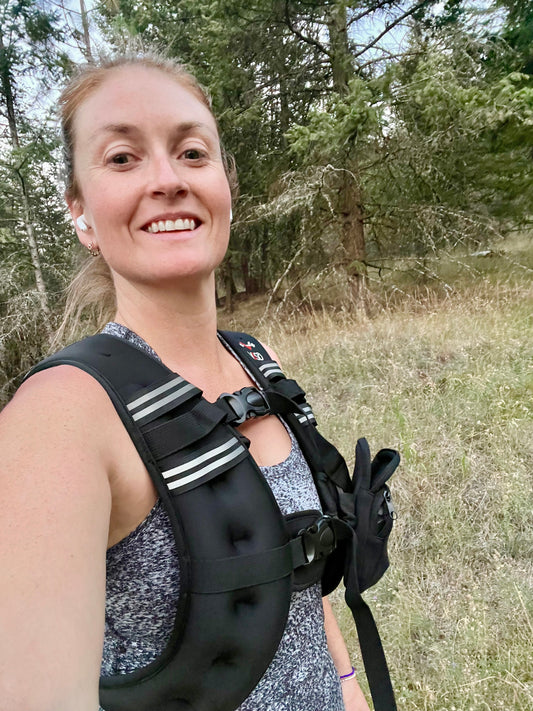If you haven’t already, check out our post introducing Intuitive Eating and our most recent post on the first principle, Reject The Diet Mentality.
Principle two, Honor Your Hunger, is especially important for those that treat hunger as the enemy. Feeling hungry can spur anxiety about what and how much to eat, and can be viewed as something to ignore, trick or minimize. There are countless strategies floating around to “beat” hunger, like drinking a lot of coffee or only eating 3 bites of your meal (yes, you read that correctly). The fundamental flaw in these strategies is that it creates a dangerous mistrust and fear of the body and its signals which can result in a myriad of unintended consequences that sabotage your goal in the first place.
“Keep your body biologically fed with adequate energy and carbohydrates. Otherwise, you can trigger a primal drive to overeat. Once you reach the moment of excessive hunger, all intentions of moderate, conscious eating are fleeting and irrelevant. Learning to honor the first biological signal of hunger sets the stage for rebuilding trust with yourself and food.”
-
Intuitive Eating Workbook, Elyse Resch and Eveleyn Tribole
Hunger is a natural and essential biological cue from the body that you are in need of sustenance, nourishment and energy. The body cannot survive without food. Those who chronically diet, intentionally or not, are likely used to denying their hunger only to create a rebound effect of insatiable, eat-anything-and-everything hunger. Attempts to suppress appetite are unsustainable and are usually associated with thoughts like, “I just ate - I shouldn’t be hungry yet” or “I’m hungry but I’m saving myself for dinner”. No matter the reason, ignoring cues of hunger and neglecting to eat is akin to dangerous dieting (check out our post on dieting [link] to learn more).
Learning to honor hunger is a key step in healing your relationship with food and fostering Interoceptive Awareness, your innate ability to perceive the physical sensations of your body. Hunger seems to be the only bodily cue that gets a bad rap – we don’t question the feeling of a full bladder, an increasing heart rate during exercise, or goosebumps during a chilly evening. In fact, we blindly listen, accept, and respond to these sensations without trying to trick or quiet them down. The goal of Intuitive Eating is to do the same with hunger.
“When your body is hungry, it tries to get your attention in a variety of ways, from mood and energy changes to increased thoughts about food. Getting to know your hunger cues might seem frustrating, especially if you have not experienced hunger in a long time – perhaps because you’ve been numb from stress or perhaps you don’t let yourself get hungry at all. The more you listen to your body, the more you will begin to hear and experience the subtler signs of hunger.”
- Intuitive Eating Workbook, Elyse Resch and Eveleyn Tribole
Try out this exercise from the Intuitive Eating Workbook on exploring the hunger-body-mind connection. It will help you to become more aware of the signs of hunger and to reflect on how and when you experience these. Check off any of these that you experience.
⃞ Stomach: A variety of sensations including rumbling, gurgling, gnawing, or emptiness. While this is a common way of experiencing hunger, there are many people who do not experience hunger signs in their stomach.
- Throat and esophagus: Dull ache, gnawing.
- Head: Cloudy thinking, light-headedness, headache, difficulty focusing and concentrating. Experiencing more thoughts about food and eating.
- Mood: Irritability or crankiness. Perhaps you have to work harder to refrain from snapping, even though you don’t present as irritable to the outside world.
- Energy: Waning, perhaps even to the point of sleepiness. There can be dullness and even apathy towards doing anything.
- Numbness: Overall lethargy
Getting to know your hunger and experiencing the benefits of acting and eating accordingly is an important part of Intuitive Eating and most importantly, an important part of respecting your body.
Our next blog post will focus on the third principle of Intuitive Eating, Make Peace With Food. Our Registered Holistic Nutritionist, Kiara, uses an approach called Intuitive Nutrition to help our clients learn how to use food to their individual advantage without the restriction of diets. To book your free consult today, fill out the form below!







